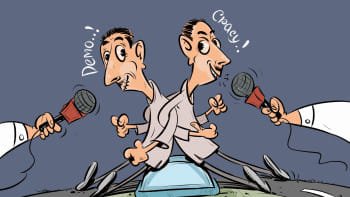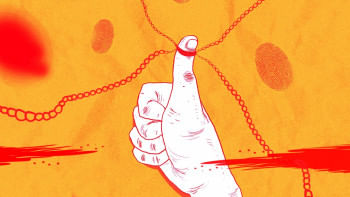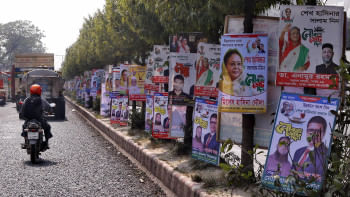The alterations we need in our Election Commission

The 1970 Pakistan election was considered the "fairest and cleanest" election in Pakistan's history, which paved the way for Bangladesh's independence from Pakistan. However, Bangladesh has failed to institutionalise a sound electoral process in the 53 years since independence. Even though all elections held under caretaker governments (CG) were termed as mostly free and fair, elections held under political governments lacked credibility; some were even considered farcical. The key reason is political interference into the workings of election administration by successive political governments since 1972. To stay in power, the ruling class in most cases conducts purely decorative and ritualalistic elections denying independence to the Bangladesh Election Commission (BEC) and politicising other institutions with electoral responsibilities such as law enforcement agencies, local administration, judiciary, etc. aiming to manipulate election results.
The democracy-loving people of Bangladesh, where elections are festivals, are waiting to exercise their franchise in the 13th parliamentary elections. However, to ensure requisite institutional conditions for holding the next elections, the interim government needs ample time to rebuild Bangladesh's electoral institutions. The interim government and the new election commission, which is expected to be formed soon, must address the following key immediate issues not only to guide Bangladesh towards conducting genuine democratic elections but also to render the commission a professional citizens' organisation.
First, the country needs an independent election commission (EC) free from political intervention. The first and foremost step towards an independent EC is the recruitment of credible and non-partisan authorities with a demonstrated commitment to democracy and accountability to citizens. However, the Chief Election Commissioner and Other Election Commissioners Appointment Act, 2022 is incomplete, as it lacks recruitment criteria for commissioners, excludes citizen scrutiny, and does not ensure transparency. Moreover, the loopholes around this law allow the ruling class to easily recruit loyal people as election commissioners. Therefore, the interim government should engage an expert pool to review and propose amendments to the law to ensure it is comprehensive, adheres to international best practices, and ensures the recruitment of commissioners capable of neutrally performing their functions.
Second, no EC around the world can conduct credible elections alone. They need support from various institutions, including the police and civil service. During elections, the EC should emerge as the de facto government authority on election administration, assuming total control over police and bureaucracy, and cutting its link with the political government completely. Political neutrality of electoral institutions is paramount. However, due to blatant politicisation of state institutions, some police personnel in particular played a blatant role in ensuring victory of ruling party candidates, including widespread ballot stuffing in multiple elections held under a political government. In order to neutralise temporary poll officials, including police, the IG should amend the Election Officers (Special Regulations) Act, 1991 so that no temporary poll officials, including returning officers and police, can play a biased role in any future elections.
Third, the EC should become a citizens' organisation. In genuine democratic elections, citizens are "the ultimate controlling power." Therefore, EC-decision making must be based on citizens' voices to make the EC "of the people, by the people and for the people." The new EC should conduct its work transparently, including adopting a transparency guideline so that Bangladesh can benefit from an EC that is fully accountable to citizens.
Fourth, an election cannot be termed as credible if opposition parties do not participate and if there is a lack of qualified candidates running for office. The UN declared that "political contestants (parties, candidates and supporters of positions on referenda) have vested interests in the electoral process through their rights to be elected and to participate directly in government." In Bangladesh, there are allegations that some qualified political parties were denied registration with the EC, while parties that did not meet the registration criteria were enlisted. Lack of participation of all qualified political parties raises questions about the credibility of elections. Therefore, both the IG and the EC, before the next election should create equal opportunity for all political parties to participate in elections.
Fifth, election observation in Bangladesh has never been professionalised due to official and unofficial political intervention of the ruling party and EC restrictions. While election observers are a key electoral stakeholder, the EC never established professional relationships with observer organisations. Instead, many credible observers were labelled as "politically biased" when they published credible election observation reports.
There are many examples of political, election-time governments thwarting effective election monitoring by pressuring election observers in multiple ways. Practices that negatively impacted past observations efforts include NGO Affairs Bureau cancelling previously approved funds for observing organisations to prevent them from carrying out their mandates; intelligence agencies subjecting election observers to intense scrutiny, which discouraged observers from conducting election monitoring; BEC issuing credentials during the night preceding election day, preventing observers from traveling to their desired constituency, and restricting observers' movement.
Due to such barriers, most credible organisations stopped observing elections in Bangladesh. The IG and the BEC should develop a strategy not only to professionalise election observation but also to build a culture of accrediting credible election observation organisations as an integral part of elections.
Elections are of paramount importance to a country's quality of democratic governance. They are the means through which people voice their preferences and choose their representatives. I strongly believe the presence of an interim government creates an opportunity to bring elections back to the citizens of Bangladesh, including establishing a sustainable electoral mechanism which no longer change the rules of the game to engineer electoral outcomes.
Dr Md Abdul Alim is an elections specialist, currently working as principal director with Democracy International, and previously served as director of the Election Working Group.
Views expressed in this article are the author's own.
Follow The Daily Star Opinion on Facebook for the latest opinions, commentaries and analyses by experts and professionals. To contribute your article or letter to The Daily Star Opinion, see our guidelines for submission.

 For all latest news, follow The Daily Star's Google News channel.
For all latest news, follow The Daily Star's Google News channel. 










Comments